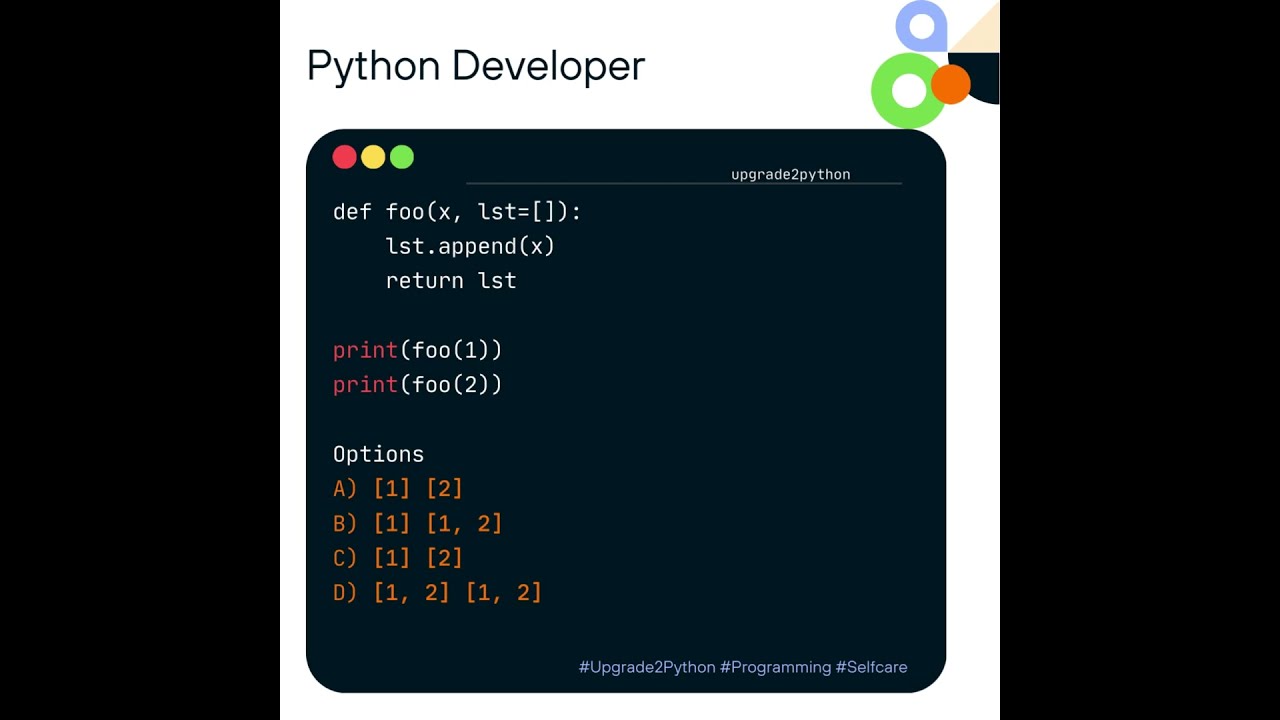“Welcome to Upgrade2Python, your go-to channel for mastering Python programming! Whether you’re a beginner taking your first steps into the world of coding or an experienced programmer looking to level up your skills, Upgrade2Python is here to help you succeed.
Join us as we explore the ins and outs of Python, from basic syntax to advanced techniques. Our tutorials are designed to be clear, concise, and easy to follow, making learning Python fun and accessible for everyone.
Stay tuned for regular updates and new content designed to help you upgrade your Python skills and reach your programming goals. Subscribe now and let’s upgrade to Python together!”
Music: Bensound.com/royalty-free-music
License code: TOTYG79JGPBKEMI3
The output of the code is:
B):
[1]
[1, 2]
“`python
def foo(x, lst=[]): # Defines a function ‘foo’ with parameters ‘x’ and ‘lst’. ‘lst’ has a default value of an empty list.
lst.append(x) # Appends the value of ‘x’ to the list ‘lst’.
return lst # Returns the modified list.
print(foo(1)) # Calls ‘foo’ with ‘x’ as 1. Since ‘lst’ is not provided, it uses the default empty list.
print(foo(2)) # Calls ‘foo’ again with ‘x’ as 2. The same list ‘lst’ is used, not a new empty list.
“`
When you run this code, you might expect to see two separate lists: `[1]` and `[2]`. However, the output will be:
“`
[1]
[1, 2]
“`
This happens because the default value for the `lst` parameter is evaluated only once when the function is defined, not each time the function is called. Therefore, the same list (`lst`) is used in subsequent calls to `foo` if the `lst` parameter is not provided.
To avoid this, you can use a default value of `None` and then create a new list inside the function if `lst` is `None`:
python
def foo(x, lst=None):
if lst is None:
lst = []
lst.append(x)
return lst
Now, each call to `foo` without a specific `lst` argument will result in a new list being created, and the output will be as initially expected:
[1]
[2]
This is a safer way to use mutable types as default arguments in Python functions.
#google #googleinterview #googleplay #microsoft #microsoftinterview
#jpmorgan #jp #python #Upgrade2Python #upgrade2python #facebook #facebookreels #upgrade2python #facebookreels #pythontutorial




コメント